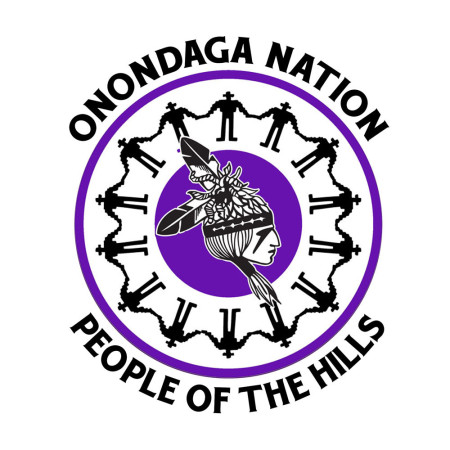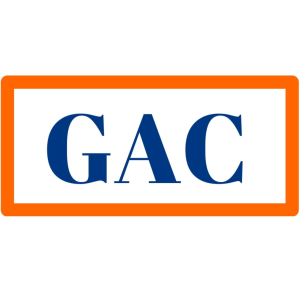Inter-American Commission on Human Rights Rules the USA Must Answer for Allowing Illegal Seizure of More Than 2 Million Acres of Land Guaranteed by Treaty to Onondaga Nation

NEW YORK, July 6, 2023 (Newswire.com) - The Inter-American Commission on Human Rights has upheld the Onondaga Nation's right to pursue claims against the United States and New York State for the unjust taking of Indigenous lands two centuries ago without approval by the US Congress or governing authorities of the Onondaga Nation.
The landmark Admissibility ruling, issued by the IACHR which is part of the Organization of American States treaty signed by the United States and other Western Hemisphere nations, is a major step in the Onondaga's centuries-long struggle to force New York State to account for its illegal takings and subsequent sales for profit of treaty-guaranteed land that reduced the size of the Onondaga Nation from 2.5 million acres to its current 7,500 acres.
In its filings with the IACHR in response to the Onondaga complaint, the US relied on US court rulings rejecting comparable land claims by the Oneida and Cayuga Nations, sister nations to the Onondaga in the Six-Nation Haudenosaunee Confederacy. Those rulings found that Indigenous claims to ancestral lands set aside in treaties, as well as protections enshrined in the federal Trade and Intercourse Act governing the sale of Indigenous lands to non-Indigenous parties, were too old and disruptive to the non-Indigenous residents on those lands today.
In its report sent to Secretary of State Anthony Blinken and the US Permanent Representative to the OAS, the IACHR rejected that argument, noting that the OAS American Declaration on the Rights and Duties of Man gave the Onondaga standing to challenge the US's refusal to rein in the illegal land purchases in New York State, which were carried out without the approval or authorization of the governing authorities of the Haudenosaunee Confederacy or the Onondaga Nation itself.
"The passage of time does not diminish our determination to protect our people and regain our land which has sustained us for millennia," said Sid Hill, the Tadodaho (or chief) of the Onondaga Nation who heads the council overseeing the Haudenosaunee Confederacy. "Our view of life is linked to the core belief we must act to honor those seven generations in the past and serve those seven generations into the future. In this case, justice has certainly been delayed. We hope it will not be denied."
Joseph Heath, the Syracuse-based attorney representing the Onondaga Nation who has been challenging the illegal land purchases since 2005, first in American courts and later, starting in 2014, before the IACHR, applauded the IAHCR ruling.
"The Onondaga Nation welcomes this Admissibility decision by the OAS Inter-American Commission on Human Rights, because it advances the Nation's never-ending work to regain its lands and waters and the Nation's Petition which charges the United States with human rights violations for the illegal thefts of the Onondaga homelands, for the environmental devastation of those lands and for the failure of U$ courts to provide any remedy for these treaty and human rights violations," Heath said.
The IAHCR requires petitioners to exhaust legal remedies available within member states before bringing an action before it. The IAHCR Admissibility decision recognizes those legal arguments before American courts have now been exhausted because the dismissals have closed the courthouse doors, and the Americans will have to answer to the international tribunal.
The IAHCR decision allowing the Onondaga to pursue their claims against the US and New York state explicitly rejected the argument adopted by US courts that the claims were too old and disruptive to non-Indigenous settlers to be allowed to proceed.
"Regarding the United States, the Commission had previously stated that determinations by domestic bodies that historical land claims by an indigenous people would be denied based on the "extinguishment" of their land rights due to the encroachment by non-indigenous persons, and without a due process where indigenous peoples' rights and interest were adequately represented, were incompatible with the rights of equality before the law, right to fair trail and property under the American Declaration," the IAHCR ruling reads.
The Onondaga Nation and the Haudenosaunee Confederacy are relying on a series of three treaties they signed with the new United States government between 1788 and 1794, which, as the IAHCR Admissibility decision notes, "affirmed the sovereignty of the Onondaga Nation, promised to protect Onondaga lands and guaranteed the Onondaga Nation the 'free use and enjoyment' of its territory."
But between 1788 and 1822, New York State, without the required approval of the US Congress or the Onondaga governing authorities, illegally took more than 2 million acres of land and then "flipped" them for enormous profit to non-Indigenous landowners.
Their petition to the IAHCS asserts that "that the Onondaga Nation has never voluntarily conveyed, ceded, sold, given up or relinquished its title to any portion of its aboriginal territory. According to the petition, in keeping with its treaty commitments, the United States has never authorized or approved any transaction conveying Onondaga Nation land to any state, person, corporation, organization or other entity ... Generally, the petitioners assert that the State of New York engaged with unauthorized individuals to acquire the lands, and not the Onondaga Nation itself."
The IACHR ruling sets up a timetable for both the Onondaga and the US to respond to the order within four- to six-months, after which the matter will go to a formal hearing on the merits of the claim that the illegal land grab amounts to a human rights violation of the Onondaga's treaty-guaranteed right to "free use and enjoyment" of its territory.
Copy of IAHCR ruling and letter to Secretary of State Blinken available upon request.
Source: Inter-American Commission on Human Rights
